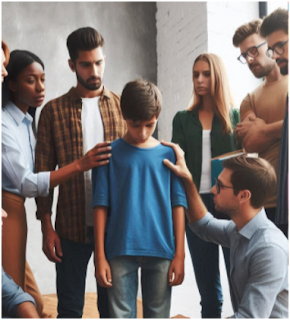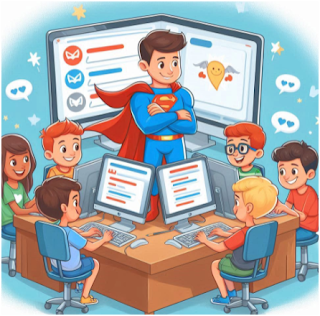The Allure of Connection and Identity
Social media offers a crucial lifeline for teenagers navigating a world of social change and self-discovery. It bridges geographical distances, allowing teens to connect with friends and family who might live far away. It fosters a sense of belonging by connecting them with communities with similar interests, providing a safe space for acceptance and validation during a crucial time in their development. Social media platforms also become a launchpad for self-expression. Teens can experiment with their online persona, explore their passions, and share creative work – from photography and art to music and writing. This exploration of identity can be a valuable tool for self-discovery.
Learning and Expanding Horizons Beyond the Classroom
The informative potential of social media should be noticed (Zhang 2024):
- Teens can leverage these platforms to stay updated on current events, following news sources and journalists they trust.
- They can access educational content tailored to their interests, perhaps delving deeper into a subject that sparked their curiosity in school.
- Social media can also be a window into diverse cultures and trends, fostering a global perspective and a sense of interconnectedness.
Additionally, some platforms can nurture creativity by allowing teens to share their work and receive feedback from a wider audience. This exchange of ideas can inspire them to grow and refine their skills.
The Shadow Side: When Comparison Breeds Discontent
However, the curated perfection displayed on social media can be a double-edged sword. Constantly comparing oneself to seemingly perfect online personas can negatively impact a teenager's self-esteem. The carefully crafted highlight reels of others can fuel feelings of inadequacy, envy, and dissatisfaction with one's life. This social comparison trap can morph into anxiety, depression, and a sense of social isolation, all impacting one's overall mental well-being.
Addiction and the Erosion of Real-Life Connections
Social media platforms themselves can be addictive by design. Features like instant likes, comments, and notifications trigger the reward centers in the brain, creating a cycle of craving and gratification that can be difficult to break. Excessive social media use can lead to neglecting real-life relationships and responsibilities. Meaningful face-to-face interactions with friends and family and participation in activities like sports or hobbies get sacrificed for the allure of the virtual world. This social withdrawal can further exacerbate feelings of isolation and loneliness, creating a vicious cycle.
Building a Healthy Relationship with Social Media: A Collaborative Effort
The good news is that there are ways to combat social media addiction and promote healthy online habits for teens. Parents can set positive examples by demonstrating mindful social media use and encouraging alternative activities like sports or hobbies that foster real-world connections and a sense of accomplishment. Open communication about online experiences and potential pitfalls is essential. Parents can be a sounding board for teens to navigate the complexities of the online world. (Zhang 2024)
Schools can contribute by offering a variety of extracurricular activities and fostering a sense of community where students can develop strong social connections beyond the virtual realm. Additionally, integrating media literacy and responsible social media use into the curriculum can empower teenagers to make informed choices about their online presence. Teens can learn to critically evaluate the information they consume online and develop healthy boundaries for their social media use (Zhang 2024).
Public awareness campaigns can play a vital role in educating society about the potential dangers of social media addiction. We can create a more supportive environment by encouraging all stakeholders – parents, educators, and teens – to take responsibility for promoting healthy online habits. Open communication and fostering a sense of community, both online and offline, are key.
The Road Ahead: Continuous Research and Collaboration
References
- Zhang, Wanting. (2024). An Analysis of Social Media Addiction in Adolescents. Lecture Notes in Education Psychology and Public Media. 52. 87-91. 10.54254/2753-7048/52/20241537.



















